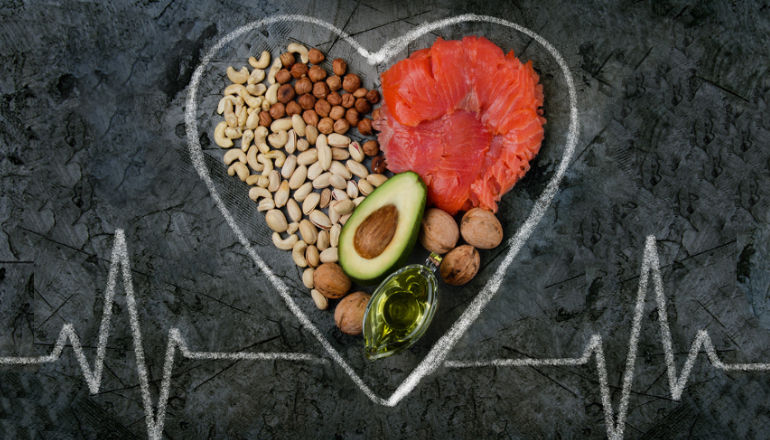
Daily Nutrition & Health
Keeping Nutrition and Fitness at the Heart of Vascular Health
Dr. Alex Teo - Director, Research & Development and Scientific Affairs, Asia Pacific, Herbalife 27 July 2023
How to Minimize Cardiovascular Risks in Vascular Health?
As the world turns a page on the pandemic, much is still unknown on the full implications of the Covid-19 virus and its health impacts in the long term.
For example, “long Covid” is an emerging phenomenon that has brought about anxieties over the pandemic’s largely undiscovered long-term effects. Recent studies show that this virus could increase the risks of cardiovascular diseases (CVDs). This is especially true for people with pre-existing cardiovascular conditions or those who lead unhealthy lifestyles.
In Asia, this is a concerning development as CVDs were already the leading cause of 10.8 million deaths in 2019. This makes up approximately 35% of the total deaths in the region.
Amidst this landscape, how can consumers maintain or boost their vascular wellness? The shift in focus towards preventive care can help. This includes choosing a healthy lifestyle with balanced nutrition that promotes heart health. Regular check-ups and maintaining a good relationship with a healthcare professional (HCP) are also helpful.
According to the Herbalife Myth Survey, consumers also want and rely on credible and accurate information from HCPs and nutrition companies when it comes to differentiating between nutrition myths and facts. Hence, HCPs can play a role in raising awareness on nutrition and lifestyle options for health risk prevention.
Here are some aspects for consumers and HCPs to look into when it comes to maintaining a healthy heart:
General nutrition philosophy
The ideal calorie intake for heart health comprises 40 per cent carbohydrates, 30 per cent protein, and 30 per cent healthy fats. This can be combined with 25 grams of fiber and adequate hydration – around eight glasses of water per day.
While a dietary pattern of fresh fruits, vegetables, lean protein and whole grains provide a good daily dose of vitamins and minerals. Other natural molecules such as omega-3 fatty acids, nitric oxides, and flavanols also have beneficial effects on vascular health.
Omega-3
Omega-3 can maintains healthy vascular performance as it reduces inflammation throughout the body. Inflammation often causes heart diseases and strokes as it tends to restrict blood flow through the vascular system.
Foods like fatty fish (salmon, mackerel, and tuna), flaxseeds, walnuts, pumpkin seeds, and soybeans are high in omega-3 fatty acids. Fish is a great substitute for foods like beef, which is high in saturated fat. The omega-3s also help to support a healthy cardiovascular system by helping to lower triglyceride levels.
Consuming plant-based omega-3 fatty acids supplements is useful for vegetarians, as these are mostly found in fish.
Nitric Oxide
Although still largely unfamiliar among the general public, the importance of the molecule nitric oxide is critical in supporting good heart health. Nitric oxide is a molecule that helps all the cells in our body to communicate with each other. It is an important biological regulator and therefore a fundamental component in many fields of physiology and medicine.
As a component of our arteries and other organs, it restores arterial elasticity and promotes vasodilation. This means the widening of blood vessels resulting from relaxation of the muscular walls of the vessels. With an intake of 3 grams or more of arginine, which can be found in protein-rich foods such as nuts, fish, meats, dairy, and multigrain, we can increase the amino acid, which gets directly converted into nitric oxide.
Flavanols
Flavanols, which are naturally occurring compounds found in plants, can support cardiovascular health by lowering blood pressure. Flavanols can also help improve nitric oxide production and arterial function.
Flavanols are found in foods like berries, cocoa (dark chocolate), kale, and tea to name a few sources of high concentration.
It is recommended that cocoa flavanols be consumed daily from sources such as cocoa powder (2.5 grams), dark chocolate (10 grams), and/or cocoa extract (200 miligrams). Health-conscious people can go for chocolate products with less sugar and fat to benefit from cocoa flavanols.
Similarly, studies have shown that drinking green or black tea may have beneficial effects on blood pressure in people with pre- and hypertensive ranges. Furthermore, tea consumption can benefit people with type 2 diabetes, who have a higher risk of heart disease and stroke.
Get your heart active
People with existing or potential vascular risks should note these tips on the right kind and duration of exercises. For instance, the American Heart Association recommends 150 minutes or more of moderate-intensity aerobic workouts or 75 minutes of intense aerobic exercises per week. Depending on the person, one can also choose a combination of both. The World Health Organization (WHO) also recommends aerobic exercise as the ideal form of physical exercise.
The aerobic exercises focus on repetitive and patterned movement of muscle groups such as legs, shoulders, and arms. The most popular aerobic activities include swimming, jogging, walking and dancing. HCPs can educate patients on the benefits of exercise such as lowering blood pressure, strengthening of muscles leading to superior oxygenation. It can also help with weight management, lowering of stress and increase in presence of HDL cholesterol. Complementing these exercises with adequate nutrition and food intake is also crucial.
Role of Healthcare Professionals
With the added threat of Covid-19 related cardiovascular risks, an active lifestyle is even more important. By advocating an active lifestyle with the right nutrition, HCPs can change the way people manage their vascular health. Medical facts and health resources need to be conveyed to the general public in an easy-to-understand manner. Caregivers can also identify people who are at a higher risk by looking at their parameters such as lifestyle, food habits, existence of heart problems, diabetes and the individual as well as family health history.
Multi-sector collaborations can also go hand in hand with ongoing efforts to raise public education. For example, Herbalife has collaborated with various government bodies and nutrition organizations. In Indonesia, the company’s partnership with GERMAS, a government organisation under the Ministry of Health, has aided the dissemination of information from GERMAS’ many public health campaigns to local consumers. This was carried out with the help of Herbalife’s extensive distributor networks.
Steps forward for vascular wellness
The identification of Covid-19 as a contributor to vascular diseases has raised a new area of concern. However, this risk can be managed and prevented by more meaningful collaborations between HCPs, nutrition companies and other stakeholders. It starts with enabling wider access to accurate and proper information about the causes of vascular diseases. We can also encourage more prevention measures like balanced nutrition and an active lifestyle.
This article was first published in Asian Hospital and Healthcare Management.
Trending Articles






